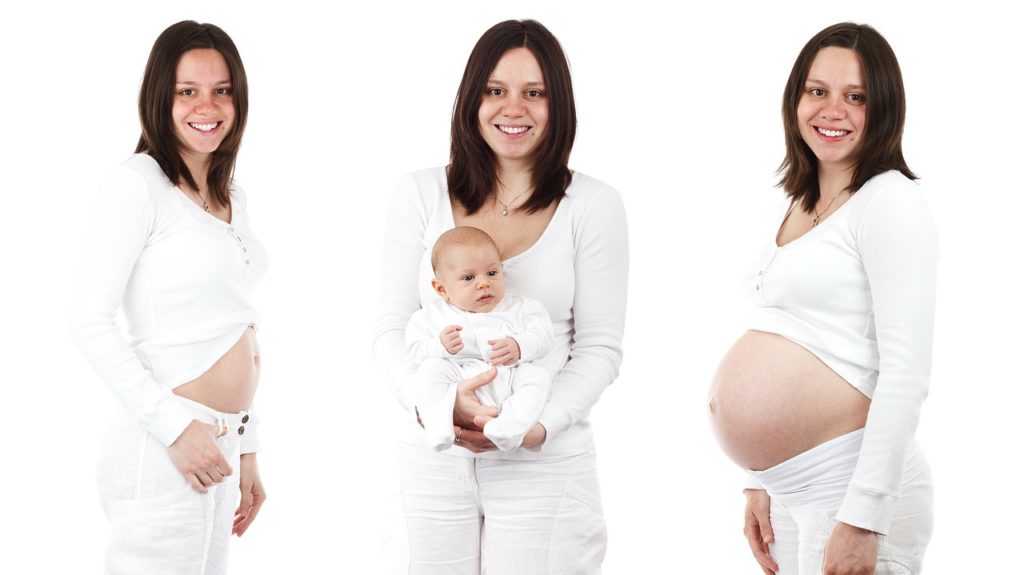Acupuncture for In vitro Fertilization
1. Introduction
Acupuncture is a very effective supporting treatment for women undergoing in vitro fertilization (IVF). During recent 20 years, research papers for acupuncture on IVF have been increased by 20 folds. Those research works provide many scientific evidences that acupuncture can increase pregnancy rates by directly balancing hypothalamic-pituitary-ovarian axis, increasing oocyte maturation, and reducing endometrial cavity fluid et al during IVF.
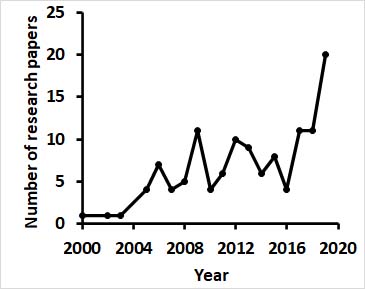
2. Clinic trials for Acupuncture on IVF
A randomized, prospective, controlled clinical trial conducted by Stefam Dieterle et al studied the effect of luteal-phase acupuncture on the outcome of IVF/intracytoplasmic sperminjection (ICSI). 225 patients undergoing IVF/ICSI were involved in this study. 116 patients received luteal-phase acupuncture according to the principles of traditional Chinese medicine. 109 patients received placebo acupuncture as control. Result showed both clinical pregnancy rate and ongoing pregnancy rate are 33.6% and 28.4% in acupuncture groups respectively, which were significantly higher than 15.6% and 13.8% in control groups. Other randomized controlled clinic trial conducted by Guven et al investigated the effect of acupuncture on pregnancy success rates applied before and after embryo transfer among women undergoing IVF. 72 patients undergoing IVF were involved in this study. 36 patients received acupuncture. 36 patients received placebo acupuncture as control. This study found positive Beta HCG was detected in 63.9% of the acupuncture group and 33.3% of control groups. Clinical pregnancy, ongoing pregnancy, and live birth rates were 23%, 20% and 19% respectively in acupuncture groups, which are higher than 12%,11% and 10% in control group. Other randomized clinic trial conducted by Westergaarf et al evaluated the effect of one session acupuncture before embryo transfer on reproductive outcome in patients treated with IVF/ICSI. 273 patients undergoing IVF were involved in this study. 95 patients received one session acupuncture before embryo transfer. 91 patients received one acupuncture session before embryo transfer and one session after embryo transfer respectively. 87 patients did not receive acupuncture as control. This study found that clinical and ongoing pregnancy rates were 39% and 34% in one acupuncture session before embryo transfer group, 36% and 26% in two acupuncture sessions before and after embryo transfer group and 21% and 22% in control group respectively. The clinical and ongoing pregnancy rates in acupuncture groups are significantly higher than those in control group There is not significantly difference between one session and two session acupuncture groups. This study indicated acupuncture treatment on the day before embryo transfer significantly improves the reproductive outcome of IVF/ICSI, compared with no acupuncture.
3. Acupuncture for diminished ovarian reserve
Diminished ovarian reserve (DOR) is a manifestation of ovarian ageing. As women increasingly delay childbearing, DOR is becoming a greater challenge for providers of assisted reproductive technology. DOR occurs in 10% infertile women. A study conducted by Wang et al found that acupuncture modulates reproductive hormone levels and the effects seem to persist for at least 12 weeks with no significant side effects. 21 patients with DOR was involved in this study. The patients received 12 week acupuncture treatments including five sessions per week for 4 weeks and followed 3 sessions per week for 8 weeks. Mean Follicle-stimulating hormone (FSH) levels fell from 19.33 mIU/mL at baseline to 10.58 mIU/mL at week 12 acupuncture treatments. Lower level FSH continue remaining at 11.25 mIU/mL for 24 weeks without acupuncture. FSH level lower than 15 mlU/ml is considered a better chance of pregnancy achievement per IVH attempt compared to women FSH level over 15 mLU/ml. There are very few chances for pregnancy If FSH level is higher than 16 mLU/ml. This study suggests that acupuncture might increase pregnancy rate for patients with DOR.
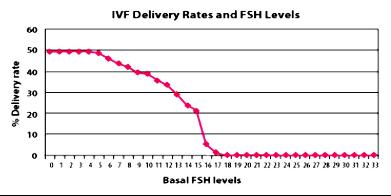
4. Acupuncture for oocyte development and maturation
The development and maturation of oocytes is potentially a key success factor for IVF. Because oocyte quality influence on good embryo development, failure of oocyte maturation is an obstacle that often causes low success in IVF. A randomized controlled trial conducted by Kusuma et al investigated effect of acupuncture on mature oocytes and fertility rates for IVF. 24 patients undergoing IVF were involved in this study. 12 patients received acupuncture and 12 patients received placebo acupuncture as control. The study found that there were significant differences in maturation and fertilization rates of oocyte, granulosa-cell apoptosis index, Bax-protein expression, GDF9 levels and BMP15 between the acupuncture and sham-acupuncture groups. Those results indicate acupuncture not only enhance oocyte maturation and fertilization rate, but also reduce the granulosa-cell apoptosis index during IVF.
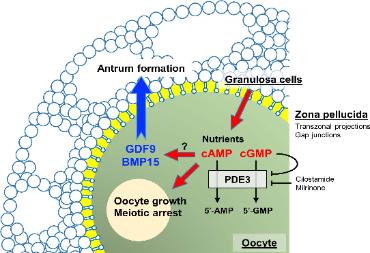
5. Acupuncture for fallopian tube obstruction and endomentrial cavity fluid
Approximately 20% of female infertility attributed to tubal causes. 10% to 25% of them account for the fallopian tube obstruction. A case report by Sun showed that acupuncture successfully treated a 39-year-old woman diagnosed with fallopian tube obstruction and DOR. The patient has been unable to conceive in the past 5 years and 3-time IVF. The patient was given 3 times acupuncture per week for 3 months without any other medical treatment. At 2-months acupuncture treatment, patient’s menstrual cycle was back to normal. After 3-month acupuncture treatments, she had a natural pregnancy and then gave birth to a healthy baby boy.
Level of Endometrial Cavity Fluid is one impotent fact to affect IVF. Clinical pregnancy rate is highest in women with very less fluid in cavity (1-2 mm). Research conducted by Su et al found that 5 sessions acupuncture per week for 3 weeks can significantly reduce Endometrial Cavity Fluid. The clinical pregnancy rate increased to 42.9% in acupuncture group compared with 26.7% in no acupuncture control.
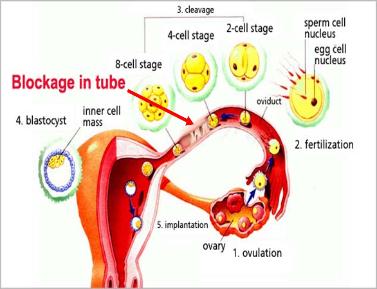
6. How to Schedule Acupuncture Sessions for IVF?
Acupuncture regulates multiple levels for IVF and each person’s issues is difference, so acupuncture should be scheduled carefully to have the best chance of success.
1. Before an IVF Cycle. We recommend start 2 acupuncture sessions per week for 3 months (3 menstrual cycles) before starting an IVF. For women with complex or especially challenging health situations, 6 months would be even better. During this time, acupuncture treatment will focus on individual issue and general health, increasing a woman’s reserves.
2. Priming Phase: During the priming phase we will continue 2 acupuncture sessions per week. For most cycles, women take medications to temporarily suppress the ovaries in preparation for stimulation.
3. Stimulation Phase: While using medications to stimulate the growth of eggs in the ovaries, acupuncture will continue 2 sessions per week. The main purpose of acupuncture is to support hormone therapy.
4. Prior to Retrieval: Once ovarian follicles are at the correct stage and size, women will be given a trigger to complete egg maturation in preparation for retrieval. Acupuncture within the day or two prior to retrieval can help with the egg final maturation.
5. Between Retrieval and Embryo Transfer: After eggs have been retrieved you may have some cramping and discomfort from the procedure. At this time, acupuncture is focused on relaxing the uterus, increasing circulation, and preparing the body for embryo transfer. Studies have shown that acupuncture just before an embryo transfer will increase the odds of a successful pregnancy. One acupuncture session will be scheduled at day before embryo transfer
6. After Embryo Transfer: transfer procedures, patient can schedule for the early morning in necessary.
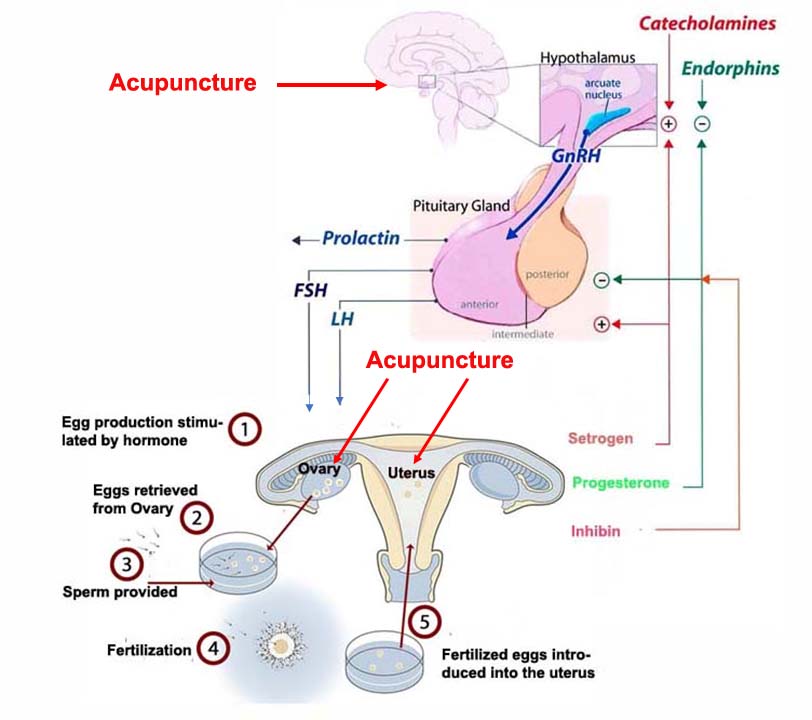
7. References
1.Martin Torrents, GV 20’s Role in In Vitro Fertilization and Frozen Embryo Transfer, Med Acupunct. 2019 Oct 1;31(5):298-303. PubMed
2. Su WW, Gao XA, Gao ZY, Pan JL, Deng F, He WT, Clinical observation on the therapeutic effect of warm acupuncture on endometrial cavity fluid from in vitro fertilization-embryo transfer, Zhongguo Zhen Jiu. 2019 Sep 12;39(9):923-6.PubMed
3. Wang Y, Li Y, Chen R, Cui X, Yu J, Liu Z. Electroacupuncture for reproductive hormone levels in patients with diminished ovarian reserve: a prospective observational study, Acupunct Med. 2016 Oct;34(5):386-391. PubMed
4.Westergaard LG, Mao Q, Krogslund M, Sandrini S, Lenz S, Grinsted J. Acupuncture on the day of embryo transfer significantly improves the reproductive outcome in infertile women: a prospective, randomized trial. Fertil Steril. 2006 May;85(5):1341-6.PubMed
5. Kusuma AC, Oktari N, Mihardja H, Srilestari A, Simadibrata CL, Hestiantoro A, Wiweko B, Muna N, Electroacupuncture Enhances Number of Mature Oocytes and Fertility Rates for In Vitro Fertilization. Med Acupunct. 2019 Oct 1;31(5):289-297.PubMed
6. Guven PG1, Cayir Y2, Borekci B3. Effectiveness of acupuncture on pregnancy success rates for women undergoing in vitro fertilization: A randomized controlled trial, Taiwan J Obstet Gynecol. 2020 Mar;59(2):282-286. PubMed
7. Dieterle S, Ying G, Hatzmann W, Neuer A. Effect of acupuncture on the outcome of in vitro fertilization and intracytoplasmic sperm injection: a randomized, prospective, controlled clinical study. Fertil Steril. 2006 May;85(5):1347-51.PubMed
8. Biyun Sun, Zhishun Liu, Effect of acupuncture on the outcome of in vitro fertilization and intracytoplasmic sperm injection: a randomized, prospective, controlled clinical study. Fertil Steril. 2006 May;85(5):1347-51.PubMed
